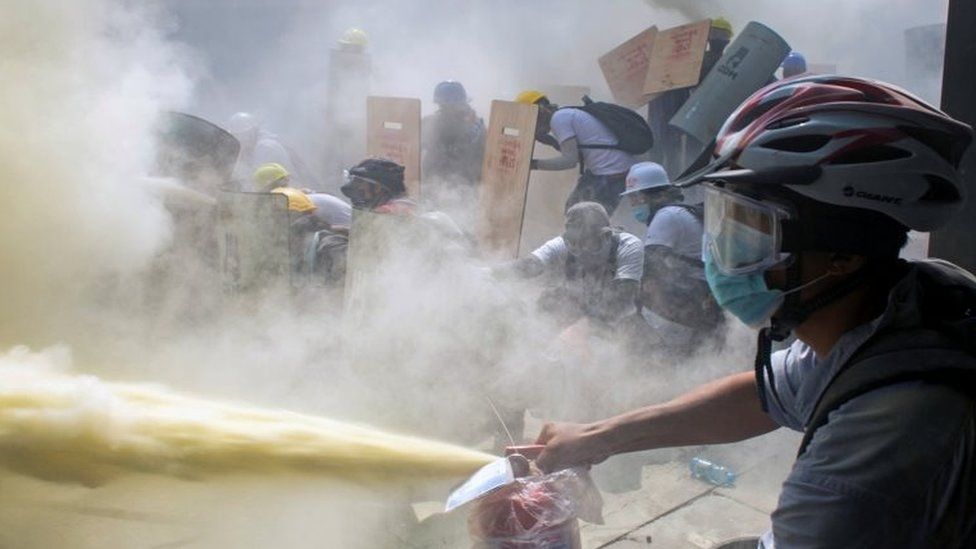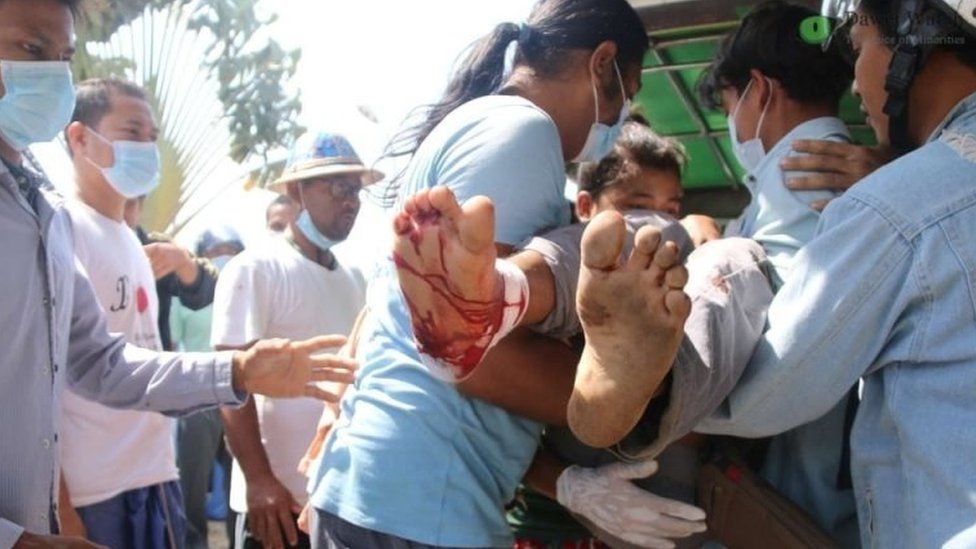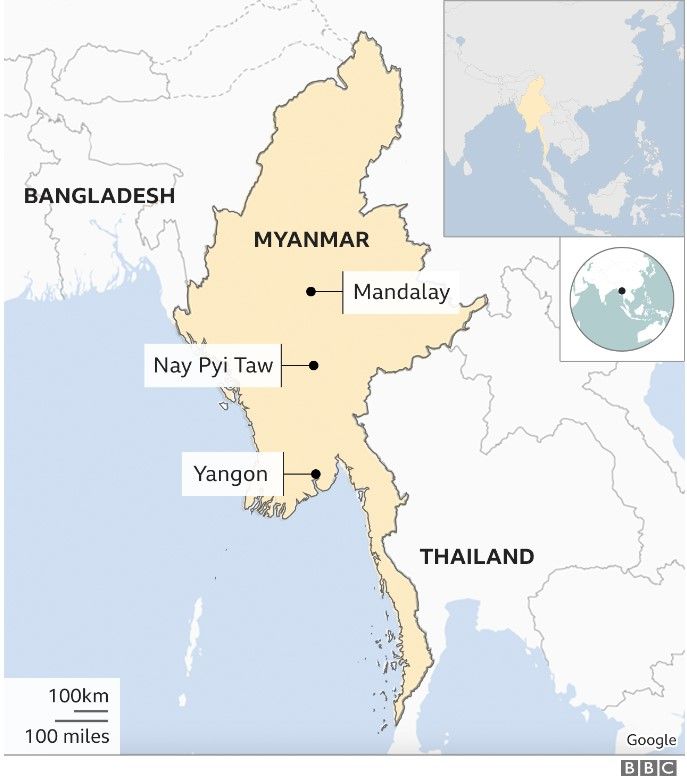Police use live rounds, tear gas and rubber bullets to disperse anti-coup rallies in several cities.

image copyrightReuters
A violent crackdown on anti-coup protesters in Myanmar intensified on Sunday with police using live rounds, rubber bullets and tear gas.
Huge protests in cities such as Yangon, Mandalay and Dawei have continued despite the police response.
There are reports of fatalities but the numbers are difficult to confirm.
The country has been rocked by protests since top government leaders, including Aung San Suu Kyi, were overthrown and detained by the army on 1 February.
Social media footage from Sunday showed protesters running away as police charged at them, makeshift roadblocks being erected, and several people being led away covered in blood.
The police crackdown, which began in earnest on Saturday, was extended as coup leaders sought to quash a largely peaceful civil disobedience campaign that has shown no sign of ending.
There have been varying accounts of death tolls. Medics and officials told AFP there had been at least six fatalities, while Reuters quoted similar sources putting the number at seven. Either would make Sunday the deadliest day of the protests since the coup began.
The figures in unverified social media reports were much higher, in some cases more than 20.
In the largest city, Yangon, police fired bullets after stun grenades and tear gas failed to disperse protesters. Social media images showed blood on the streets as people were helped away by fellow protesters.
A doctor told Reuters one man had died in hospital with a bullet wound to the chest.
The protesters remained defiant, with some setting up barricades.
“If they push us, we’ll rise. If they attack us, we’ll defend. We’ll never kneel down to the military boots,” protester Nyan Win Shein told Reuters.
Another, Amy Kyaw, told AFP: “Police started shooting just as we arrived. They didn’t say a word of warning. Some got injured and some teachers are still hiding in neighbours’ houses.”
Some protesters were herded away in police vans.
In the south-eastern city of Dawei, security forces moved to break up a rally.

image copyrightReuters
There are reports of live rounds being used. The Dawei Watch media outlet said at least one person was killed and more than a dozen wounded. One emergency worker told Reuters there were three deaths, with many more casualties feared.
Police were also cracking down on a large rally in Mandalay, where police used water cannon and fired into the air. The Myanmar Now media outlet said two people had died in the city.
Protests have continued elsewhere, including the north-eastern town of Lashio.
The number of arrests since the protests began has not been confirmed. The Assistance Association for Political Prisoners monitoring group has put the figure at 850, but hundreds more appear to have been detained this weekend.
Myanmar’s civilian leader has not been seen in public since she was detained in the capital Nay Pyi Taw as the coup began.
Her supporters and many in the international community have demanded her release and the restoration of the November election result that saw her National League for Democracy party win a landslide.
Ms Suu Kyi is scheduled to face court proceedings on Monday on charges of possessing unregistered walkie-talkies and violating coronavirus rules. But her lawyer says he has been unable to speak to her.
Military leaders justified the seizure of power by alleging widespread fraud in the elections, claims dismissed by the electoral committee.
The coup has been widely condemned outside Myanmar, prompting sanctions against the military and other punitive moves.

- Myanmar, also known as Burma, became independent from Britain in 1948. For much of its modern history it has been under military rule
- Restrictions began loosening from 2010 onwards, leading to free elections in 2015 and the installation of a government led by veteran opposition leader Aung San Suu Kyi the following year
- In 2017, militants from the Rohingya ethnic group attacked police posts, and Myanmar’s army and local Buddhist mobs responded with a deadly crackdown, reportedly killing thousands of Rohingya. More than half a million Rohingya fled across the border into Bangladesh, and the UN later called it a “textbook example of ethnic cleansing”

